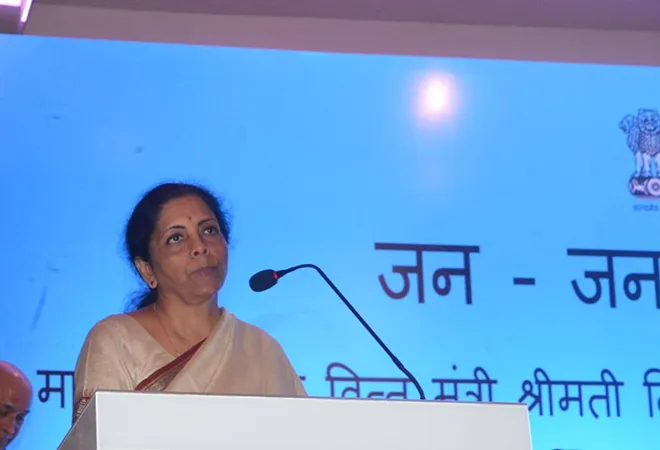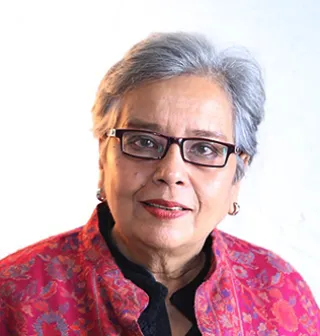-
CENTRES
Progammes & Centres
Location

No one expected that Finance Minister Nirmala Sitaraman would go out of her way to opt for generous gender budgeting. She was busy pointing out that the economy has sound macroeconomic fundamentals and that there is little fear of a severe slowdown or recession. Micro sectors did get their due attention and the allocation of Rs. 28,600 crore for women and child development may sound great. But is it enough for 500 million women of India? It is not adequate gender budgeting which involves the government to allocate funds to women specific schemes so that the benefits of growth are enjoyed fully by women. It is also not the allocation that is important but how the money is spent which is crucial. There is so much unspent funds and women are not able to benefit from the allocation.
There are a number of urgent problems which need to be focused upon for gender budgeting. One is the age of marriage. 27 per cent girls are married off by the age of 18 which makes them vulnerable to patriarchy and torture by their regressive in laws, for the rest of their lives at times leading to early child birth also. India has the highest number of child marriages in the world. Empowering women would require that girls are given higher education and training in some skills to enhance their earning power. There has to be a national policy to incentivise parents to let their daughters study further or learn some skills before marriage. The Committee set up for determining the right age of marriage is a welcome move.
Women work very hard in rural households which is unpaid work. Making women earn from doing other work than housework is important. For that, the government ought to start light industries like food processing which can give employment to rural women. This should be a top priority of the government, but it seems not to be the case in Budget 2020. Women making home made products and snacks in rural areas can sell in nearby towns, but because of lack of mobility, they are restricted from doing so. Making transportation easy and safe ought to be a priority.
Unequal wages is another important source of low earnings for women. Very skilled embroiderers near Kolkata are paid a pittance while big designers make a killing, making garments out of those fabrics. Women painters from Madhubani and Raghurajpur, Orissa, can be trained to make products that can fit into contemporary interiors. They already have skills but lack innovation. All this requires detailed attention because it will benefit women working from home.
While the government doesn’t seem to think that our unemployment problem is serious enough, it is also paying scant attention to the fact that our women’s participation in the work force at 34 percent is one of the worst in the world. The world average is 50 percent. Women have been dropping out of the workforce for various reasons. Urban women fear for their safety and sexual harassment at the workplace. Rural women find it difficult to work outside home for lack of help at home. Crèche facilities for construction workers will enable many more women to join the work force. Also equal wages in farm work is important for women to draw them into agricultural activities. Garment factory workers are paid low wages in order to let owners remain competitive. This should be discouraged and instead their productivity should be enhanced through better equipment and working conditions. Many more working women’s hostels are needed from the increase in allocation for it. Safety for women is also an important thing for women especially in cities. In rural areas too women are vulnerable to instances of rape and molestation.
The maternal mortality rate is high in India as compared to the world average. Women’s health is not of great importance especially in rural areas. Women are taught to suppress pain and not complain of ill health. Rural women die during childbirth because of complications. If primary health centres were better equipped with medicines and doctors, many lives could have been saved. Also inadequate pre- natal care is responsible for women developing complications. Unfortunately the allocation on health remains a meagre 2 percent of the GDP. Some state governments are nevertheless refurbishing primary health centres but it is not universal. India also has a large number of female suicides. Women’s mental health is increasingly a problem and has to be tackled.
Small scale women entrepreneurs are growing in great numbers. They need access to easy credit. The Budget 2020 has allocated more funds than before to self help groups and it provides for easier access to bank finance, yet much more needs to be done because women are afraid of handling all the bank paper work by themselves. It’s a good thing that the Finance Minister has thought of promoting bee keeping. Similarly poultry and silk worm farming and organic farming should also be promoted.
Some rural women are very creative and keep making beautiful products from bamboo and grass but have no proper outlet to sell them. In many cases, the middlemen take huge cuts and exploit them. Some good marketing outlets ought to be established throughout the country in villages known for their crafts.
If India wants to be a $5trillion economy, the contribution by women to GDP is of utmost importance. India cannot call itself a developed country if the women remain shackled by archaic old traditions and patriarchy. Gender budgeting should aim at empowering women and making them stand on their own feet and make their own choices and decisions. Also, to give a bigger market to products made by women, handloom and handicrafts that are mostly made of natural material by women should be promoted by people who matter in the world of style, interior decoration and fashion like Bollywood stars and top designers. Aiming at all these problems and resolving them call for careful gender budgeting which addresses all the problems that women are facing in 2020.
The views expressed above belong to the author(s). ORF research and analyses now available on Telegram! Click here to access our curated content — blogs, longforms and interviews.

Jayshree Sengupta was a Senior Fellow (Associate) with ORF's Economy and Growth Programme. Her work focuses on the Indian economy and development, regional cooperation related ...
Read More +